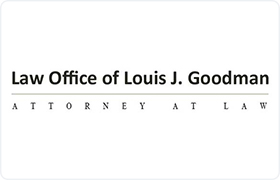Oakland White Collar Crime Lawyer, California
Sponsored Law Firm
-
 x
x

Click For More Info:
-
Louis J Goodman Attorney At Law
1290 B St Suite 307 Hayward, CA 94541» view mapCriminal Defense Law Tough, Experienced, and Professional
If you have been charged with a crime in Alameda County, California, contact The Law Offices of Louis J. Goodman.
510-582-9090
Jo-Anna Marie Nieves
✓ VERIFIEDCriminal, Felony, DUI-DWI, Misdemeanor, White Collar Crime
Armed with considerable experience working for the District Attorney in Sacramento, CA and her voluminous representation of large corporate clients in... (more)
Alan Ellis
Criminal, Federal Appellate Practice, US Courts, White Collar Crime
Status: In Good Standing
FREE CONSULTATION
CONTACTFREE CONSULTATION
CONTACTFREE CONSULTATION
CONTACTMark Cohen
Civil Rights, White Collar Crime, Personal Injury, Administrative Law, Commercial Real Estate
Status: In Good Standing
FREE CONSULTATION
CONTACTAdam Garrard Gasner
White Collar Crime, DUI-DWI, Criminal, Children's Rights
Status: In Good Standing
Alan Priest
Science, Technology & Internet, Intellectual Property, White Collar Crime
Status: In Good Standing Licensed: 12 Years
Alanna D Coopersmith
Criminal, DUI-DWI, Felony, Misdemeanor, White Collar Crime
Status: In Good Standing
FREE CONSULTATION
CONTACT Louis J. Goodman Hayward, CA
Louis J. Goodman Hayward, CA Practice AreasExpertise
Practice AreasExpertise

